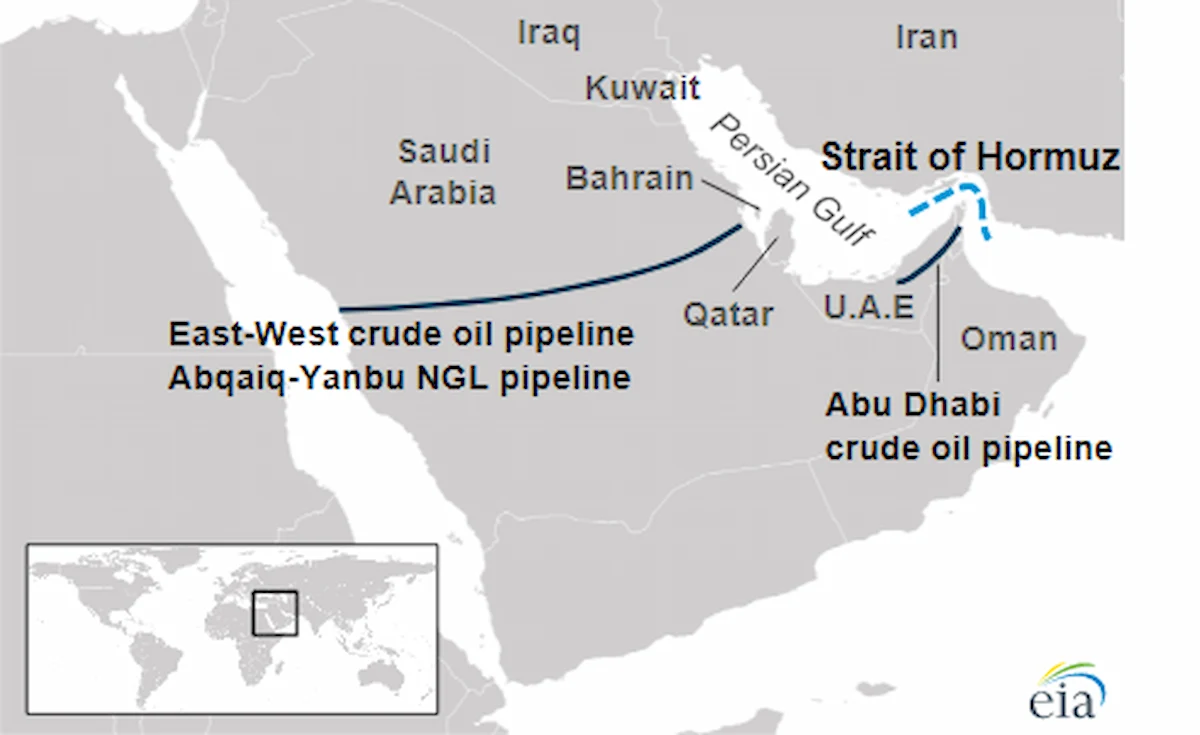U.S. Appeals to China Amid Mounting Tensions
U.S. Secretary of State Marco Rubio has called on China to intervene diplomatically with Iran to prevent a potential closure of the Strait of Hormuz, a critical global oil transit route, following reports that Tehran is considering such a move.
Iranian state media reported that parliament had passed a plan to close the Strait, though the ultimate decision rests with the Supreme National Security Council. The proposal, if executed, could significantly disrupt global energy flows.
Strait of Hormuz: A Global Oil Lifeline
Approximately one-fifth of the world’s crude oil supply flows through the Strait of Hormuz, making it a geopolitical chokepoint with far-reaching economic implications. The narrow passage is used extensively by Middle Eastern producers to ship oil and gas to markets across Asia, Europe, and beyond.
Following U.S. military strikes on Iranian nuclear facilities over the weekend, global oil markets reacted swiftly. Brent crude surged to $81.40 per barrel in early trading Monday before settling back to around $78, marking a 1.4% gain on the day.
"If they [Iran] close the Straits, it would be economic suicide for them. And other countries should be looking at that as well." — Marco Rubio, U.S. Secretary of State
China’s Stake in Regional Stability
China stands to lose significantly if the Strait’s operations are disrupted. As the top importer of Iranian oil, Beijing purchased more than 1.8 million barrels per day from Tehran last month, according to data from ship-tracking firm Vortexa.
Energy flows through the Strait are also critical for other major Asian economies, including India, Japan, and South Korea.
Energy analyst Vandana Hari noted that closing the Strait would carry high risks for Tehran:
"Iran risks alienating its oil-producing neighbors in the Gulf and provoking backlash from China — its biggest customer." — Vandana Hari, Vanda Insights
Oil Prices and Economic Fallout
Beyond geopolitical strategy, a disruption in oil flows through Hormuz would have tangible effects on everyday costs — from fuel at the pump to shipping and food prices. Analysts warn that prices could spike if the crisis deepens, straining global supply chains already under stress.
Saul Kavonic, head of energy research at MST Financial, noted the fragility of the current situation:
"The U.S. has a robust defensive stance in the region, but the risk to oil markets is that this could escalate into a much more severe conflict." — Saul Kavonic, MST Financial

China Responds to U.S. Strikes
China has sharply criticized Washington’s military action. On Monday, Beijing condemned the U.S. strikes on Iranian nuclear sites, warning that they have undermined America’s credibility and exacerbated regional instability.
Speaking to reporters, China’s Ambassador to the United Nations, Fu Cong, called for restraint:
"All parties must resist the temptation to escalate and avoid adding fuel to the fire." — Fu Cong, China’s Ambassador to the UN
In an editorial, China’s state-run Global Times accused the U.S. of destabilizing the Middle East further, pushing the situation toward what it described as an “uncontrollable state.”
Uncertain Fallout from U.S. Strikes
President Donald Trump declared that American forces had “obliterated” key Iranian nuclear facilities, but the extent of the damage remains unclear. The International Atomic Energy Agency has reported it cannot yet assess the condition of the heavily fortified Fordo underground site.
Iran maintains that only minor damage was sustained and has vowed to continue its nuclear program. In response, Trump issued a stern warning of “far worse” retaliation if Iran fails to change course.
As the situation continues to evolve, the geopolitical balancing act between Washington, Tehran, and Beijing will remain central to global energy stability and broader economic security.
Source: BBC News, June 22, 2025.






